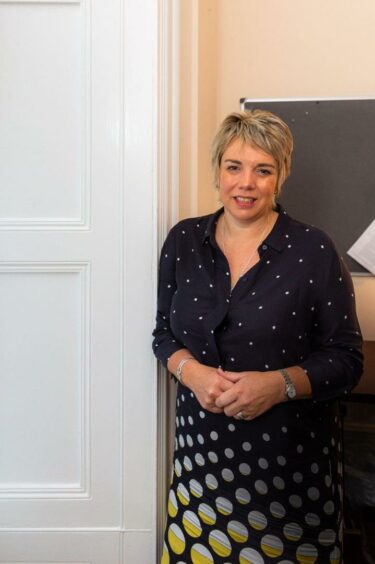The nation’s students are at risk of becoming “a generation lost to the crisis”, it has been warned.
A UK-wide survey by student jobs app Stint reveals that one in 10 students would consider dropping out if remote learning returns.
The figure in Scotland is a little lower, at 7%, but 58% of Scottish students say they know at least one person who has already dropped out during the pandemic.
The study asked more than a thousand students across the UK for their views on student life in the pandemic.
Stint founder Sol Schlagman said the results show students have “played their part to protect their communities” with 81% of Scottish students being double jabbed. Vaccine uptake was slightly lower elsewhere in the UK, at 79% in Wales and 76% in England.
Yet despite their willingness to get vaccinated, students say they’re fed up with remote learning. Well over half of students nationally know someone who dropped out during the pandemic.
“Students have been hit hard by the pandemic, at risk of becoming a generation lost to the crisis,” says Mr Schlagman. “It’s vital that uncertainty and disruption to their education ends, and that universities remain open. The consequences of yet another lost year of university will have a devastating impact on students.”
We spoke to students in the north and north east to see how they are faring during the pandemic.
‘We could be doing so much more’
Aberdeen students talking to the P&J share this sense of frustration. Ondrej Kučerák of Aberdeen Student Union said drop-out rates there have actually declined, showing how resilient students have become. However, many are now desperate for a return to normality.
“Even though the students have adapted to the challenges of the past two years, the ongoing pandemic remains really difficult,” says Ondrej. “Students have continuously gotten the short end of the stick and it is really disappointing to see the government relaxing restrictions on all other sectors while completely disregarding the education sector. This creates a disparity in society, when we could be doing so much more for our students.”
Last November, the Mental Health Foundation undertook the largest study of students’ mental health in Scotland. The Thriving Learners study offered a grim snapshot of student life during the pandemic. Nearly three quarters (74%) said they had low wellbeing, while more than a third (36%) had symptoms of depression.
Robert Gordon University (RGU) says the study backed up their own findings..
“RGU actually did very well in the Thriving Learner study,” says Professor Lynn Kilbride, Vice-Principal for Academic Development and Student Experience. “Our students generally felt we were doing well, but they are desperate to get back to school.”
Online fatigue
Professor Kilbride says students and staff did a “remarkable” job of adapting to online learning when restrictions set in. However, she describes an “online fatigue” that started to creep in over time.
“Until December 2020 we continued in a remarkable and resilient way,” she says. “But then we started to get tired and weary. An online fatigue started to impact on students and staff.”
Thankfully, this fatigue was shortlived, as restrictions started to ease in early 2021. The university started to carefully increase the face-to-face elements of university life. Weekly meetings with student union reps and regular surveys gave RGU leaders the confidence that they were headed in the right direction.
Professor Kilbride says communication with students has always been good, and students are positive about the university’s ‘golden rules’ for safety. However, it’s fair to say that everyone is keen to get back to normal.
Does Professor Kilbride think many students dropped out due to the pandemic?
“I imagine it’s more of an indirect consequence rather than a direct cause,” she says. “I think we’ve all known somebody that’s dropped out of something during the pandemic.
“It could be that university life is not what they expected. Students had a lot of mental health issues that were compounded during Covid, which gives them more stress and less resilience. Then of course there’s the financial situation some students would have found themselves in.”
Universities in evolution
Looking ahead, RGU is considering how university life might evolve. “We’re doing a lot of work with the students to gain insight from them,” says Professor Kilbride. “We will use their experience to shape what future learning will look like.”
For students studying part-time, or those with work or family commitments, online learning has provided a useful flexibility. Which begs the question: What elements of student life require face-to-face contact?
“Most of that’s about socialisation, creative collisions, all those things that build up critical thinking, that sense of belonging and collegiateness,” says Professor Kilbride. “A a safe environment where people can have real academic debate and enhance their learning. Many students come to university for another stage of their life, they want to socialise and be with others, and that’s really difficult to do online.”
Like every other element of society, universities are in a state of flux. Professor Kilbride says RGU sees itself not only as a place of learning, but as a safe space. Many of the new intake of students lack confidence – plucked straight from school during a pandemic, with little experience of exams.
University staff are working to assess those students’ skills and provide learning resources to help them adapt academically. At the same time, its welfare staff aim to offer individualised support, creating a ‘home from home’ for anxious freshers.
“It’s been a really difficult time for students,” says Professor Kilbride. “The most important thing is we continue to listen to one another and to be considerate. However we will also be innovative and quickly adapt. We want to alter provision to meet student needs. That will be a continuous process of changing, listening and evaluating. It’s an evolution and we need to keep working on it together.”
More from the Schools & Family team
‘I’m worried about Mum’ – Nairn Academy pupil designs Women’s Aid domestic abuse leaflet
‘The King Dies in Sleep’: Bracoden pupils study 70-year-old copy of Evening Express
Roof ripped off Banff Academy as longer-term damage to some schools becomes clear


